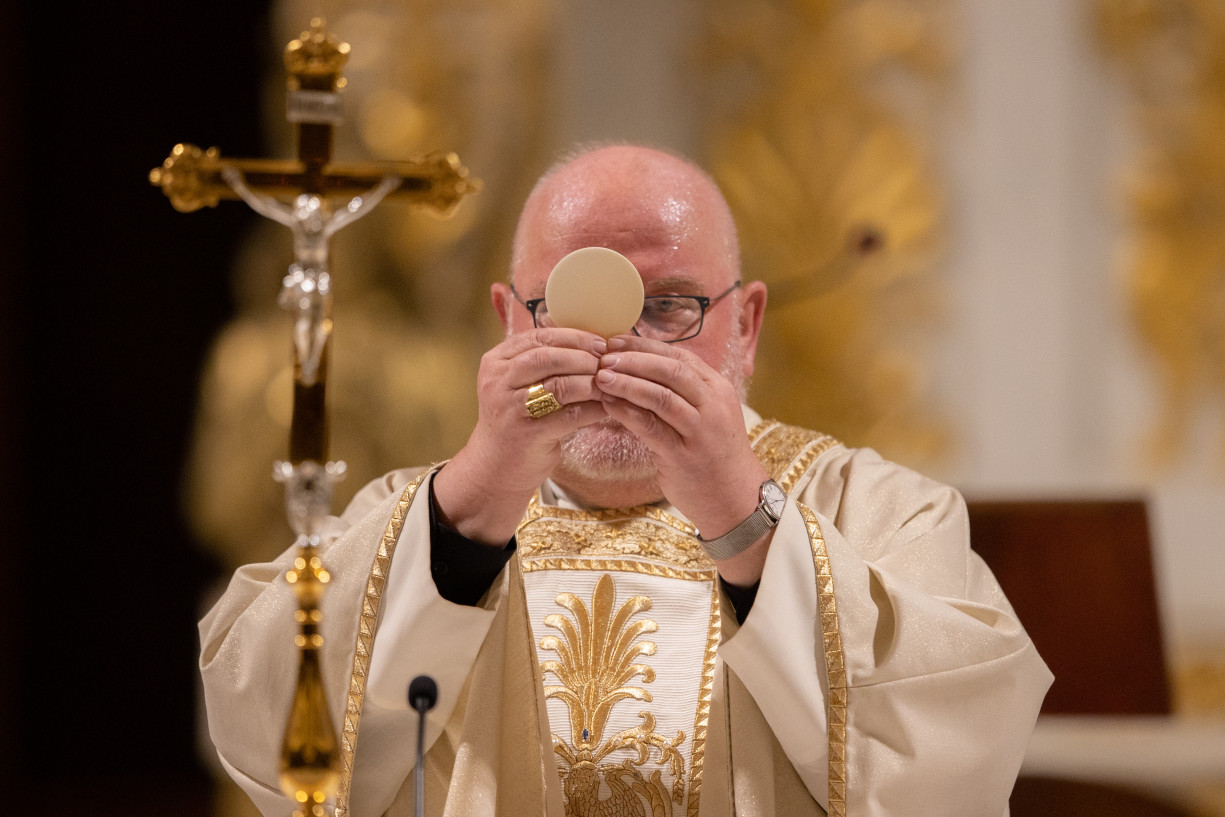It’s probably acceptable by now to write about New Year resolutions without prejudicing anybody's.
It’s a topic that frequently comes up in newspapers and online in the run-up to Christmas, with people either declaring an intention either to change their life in some way or very deliberately not to. But it seems to be bad form to talk about it when people are either still trying to keep them or have given up recently enough to feel guilty about it, so no one dares discuss the idea in the first few weeks of January.
It’s too late to make them; it’s too soon to have definitively given them up. Maybe.
But now the days are visibly starting to lengthen and even in the current cold snap I can see two crocuses and a snowdrop in my garden. Even primroses! Spring is on its way. I think we are at the stage when people can cope with the subject.
A New Year resolution is possibly already an old-fashioned way of talking about this. Nowadays, it’s all “Dry January” or “Veganuary”, both of which seem strange to me, given that Christmas celebrations tend even in secular households to continue at least until the first weekend in January, and religious households can opt to continue until Epiphany (6 January) or even Candlemas (2 February).
It isn’t just a question of timing, although the beginning of January is a really bad time to start something new and ascetic. I’m not trying to imply that everyone spends the first few weeks of the New Year either totally sozzled or feasting on haunches of venison like Henry VIII, but it’s not going to be straightforward or easy to start a new restrictive regime, especially while you probably have other people around in your household who also need to eat.
The holiday feeling is only beginning to wind down and the house is full of nice edibles that didn’t get finished, helpfully left lying around in all the rooms which were sites of festivities. The children are now so grown-up that we even have leftover tree chocolates, although the tree has been safely moved out into the garden.
At the beginning of January, you probably aren’t back at work yet, or even if you are, many other people aren’t, so those good resolutions about improving your attitude to a particularly obnoxious colleague can’t come into play. The gym you have decided to attend assiduously is either still closed or open only for short periods.
So achieving your New Year resolution(s) is going to be more complicated than it might be. And all that is before you consider your own motivation or commitment. Or lack of either. And it’s cold, and it’s dark (most of the time).
But the funny thing about New Year resolutions is that people seem to set themselves up almost deliberately to fail. You start trying to make them work at the worst possible time. Then you can look at the date (say, a week later), and conclude that since you haven’t kept your New Year resolution either yet or at all, you might as well jettison the whole thing.
It might work for some people, and the urge towards punitive improvement clearly remains strong (hence dry and vegan January), but for most people I think it’s an exercise in deciding you don’t care or you didn’t really mean it, neither of which is very helpful if you do or you did. Reinforcing a positive self-image? Definitely not.
And for a Catholic, the whole thing is irresistibly reminiscent of Confession: you keep trying to improve the same things from only a small selection, which makes it even more irritating when you fail, time after time.
A similar mood of positive spin lies behind the current trend for work “awaydays”, which everyone seems to be having around now, even the Cabinet, though they are particularly lucky in having somewhere as nice as Chequers to go to. But all the children in their different jobs seem to be doing something similar at this time of year.
I suppose when there is a natural break at Christmas, it makes sense for any enterprise to reassess and take a breath together before charging off again.
A Catholic upbringing can lead to slightly skewed expectations, though: Margaret (youngest daughter) was expecting her first office awayday to be like the Days of Recollection they used to have at school, and was disappointed not to have a session where everyone lay on the floor and snoozed through a guided meditation, always one of her favourite bits. But the buns were better at the work version, she assures me.
And after the awayday, everyone in Margaret’s office has gone down with Covid, so we’re back on segregation and trays. If only everyone’s New Year resolution had been to use masks again…
We don’t celebrate New Year in this household, partly because we tend to be still in full-on Christmas mode, and partly because we have at least two firework-phobics who need to be fast asleep before the bangs start, but at least this means we don’t have to stay up any later than we feel like, and we don’t have to worry about New Year resolutions.
Some of the children vote with their feet and head over to friends for New Year parties, which is fine so long as they don’t wake others (especially me) by returning noisily. Resolutions are a topic which simply don’t come up much. And you couldn’t possibly suggest them for anyone else, it would be rude – and my children are naturally perfect already.
Other people’s New Year resolutions can be an absolute pain, especially in gyms and my beloved swimming pool. There are always far more people assiduously attending once Christmas is over, and I have to work at feeling welcoming.
Sometimes it makes me laugh while I’m swimming because I know that every single one of us in the pool is wishing that the others weren’t there. Being as blind as a bat but unable to echo-locate because I’m deaf in one ear, I find the only thing to do is to use the poolside as my guide rail, and just keep out of everybody’s way as much as possible. But if someone else takes “my” lane, I find it very difficult! At least once Lent starts, I’ll have more motivation for offering it up.
I find Lent (or Advent, at the other end of the year) a much better option for trying to do something reformative. In Lent, you have much more incentive on the penitential side, and in Advent, you can invoke the spirit of joyful preparation. Either works better for me than New Year.
Lent is a naturally good time of year to start a new programme, because Nature is doing it too, and there are lots of little cheerful changes to observe as you go about, new green shoots and eventually flowers, bursts of blossom, birds getting noisier and more assertive.
We’re moving out of a gentle hibernation into a more dynamic stage, and I can cope with resolutions much better. Simply having more light helps quite a lot.
The Church’s emphasis in Lent nowadays seems often to be encouraging us to do something positive rather than stopping doing something negative. I’m not sure whether this is another contagion from New Year resolutions, but it’s often a lot easier to sell to children.
There is also a growing trend for what I can only describe as “Lent-Advent calendars”, with forty little boxes with improving suggestions. That feels a bit like cheating, though, because the real effort in Lent (for me, at least) is to keep something going, not repeatedly start something new. But people will concentrate on what works for them.
It’s always a shock to realise how soon Lent is creeping up on us. This year, the last Sunday in February is the First Sunday of Lent.
I remember reading about how difficult it is for people who work in magazines, because they need to work about six months in hand, or even more, so they are creating the Christmas issue in the middle of a heat wave or trying to feel relaxed and languorous while there is snow on the ground.
We church musicians and liturgists aren’t quite as bad as that, but we are already fielding enquiries about Lent music, and anxious choir directors are trying to work out the subtleties of Lent Gospel Acclamations.
(I spent ages on this a while back, because it’s one of those things that you sort out in your mind but it won’t stay sorted. If anyone needs a quick guide, you can find it here.)
Good luck to anyone still persevering with a New Year’s resolution, and don’t worry if you’ve already given up or missed the boat at an earlier stage – your next opportunity is just around the corner!
And it’s always much easier if God is involved, so that’s a definite plus.
Kate Keefe composes musical settings for the Mass and writes about the psalms. You can follow her on Facebook, Twitter and LinkedIn .



 Loading ...
Loading ...
What do you think?
You can post as a subscriber user ...
User comments (0)